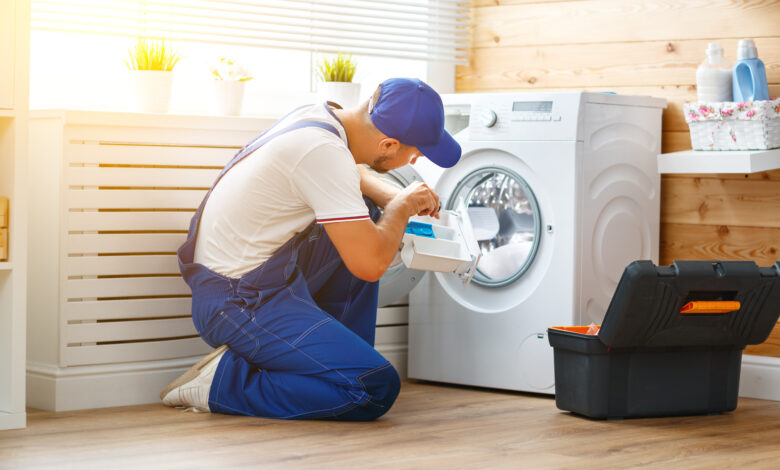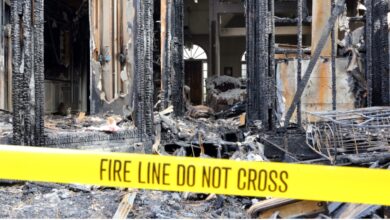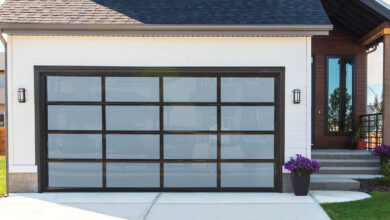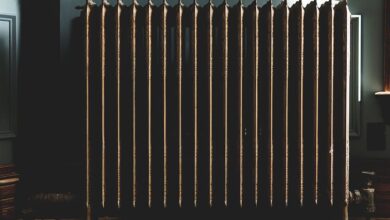When to Call a Professional for Appliance Repair: Signs You Shouldn’t Ignore

Appliances are intended to operate silently, seamlessly integrating into our daily routines. Nonetheless, it may be a cause for concern if they begin producing unusual sounds such as rattling, grinding, or high-pitched squeals. In such situations, it is wise to seek the expertise of professionals like Iowa appliance repair. These noises frequently signal issues with internal parts like motors, fans, or compressors. If your fridge begins to make loud, strange sounds out of nowhere, it could be because of a faulty compressor or damaged fan blades. Dealing with these sounds quickly can stop more harm and avoid a total system breakdown.
Unexpected Leaks: The Wet Signs
Water leaks near your appliances can rapidly progress from a minor annoyance to a major household problem. Leaks not only result in water wastage but can also cause significant water damage and encourage mold growth if left untreated. If you mop up water after every cycle, it’s a sign that something is missing, be it a cracked hose, faulty water inlet valve, or a worn-out door gasket. Finding the origin is crucial, as ongoing leakage may cause harm to both the appliance and nearby structures like cabinets or floors. Prompt action, preferably from a qualified appliance specialist, could help avoid significant damages and extra expenses for repairs.
Electrical Issues: Safety First
Electrical issues represent some of the most dangerous problems an appliance can face. If you notice that the appliance causes the lights to flicker or frequently trips the circuit breaker, these severe issues demand immediate attention. Such symptoms often point to deep-rooted electrical faults like frayed wires or overloaded circuits. It is strongly advised against fixing electrical issues yourself because of the danger of electrocution or fire. Hiring skilled professionals guarantees safety and avoids additional harm to the appliance and your household’s electrical system.
Unusual Smells: A Burning Concern
Unusual odors emanating from an appliance, especially those akin to burning, should not be taken lightly. These scents could result from electrical issues, such as short-circuiting or overheating components that are melting. Beyond the immediate fire risk, these burning smells could indicate insulation or wiring problems. Switching off the appliance immediately and contacting a professional for an inspection can eliminate hazards and reveal any underlying issues, thereby maintaining household safety and extending the life of appliances.
Performance Decline: Less Efficiency
Gradual performance decline is a subtle but significant indicator that your appliance might need professional care. When a dryer takes longer to dry clothes or a refrigerator struggles to maintain cool temperatures, these performance issues might not seem urgent initially. Still, they can lead to inefficiency and higher energy bills. The decline can be attributed to blocked filters, compromised door seals, or mechanical components nearing the end of their lifespan. Quick intervention by appliance experts can diagnose and remedy these issues, ensuring optimal performance and efficiency.
Rising Energy Bills: Unseen Culprits
A sudden rise in your electricity bill is usually caused by malfunctioning appliances using more energy than needed. Issues such as worn-out motors, clogged drains, or outdated technologies can prevent devices from consuming excessive power. Regular maintenance and timely professional checks are critical to identifying these issues early. By aligning your energy consumption with federal energy standards, you can ensure that your appliances operate efficiently, saving money and reducing your environmental footprint.
Frequent Restarts: A Telltale Symptom
Appliances that unexpectedly restart or shut down might be more than just an irritant; they could be signaling troubles with their electronic control system. This erratic behavior can be due to faulty thermostats, failing electronic boards, or even circuit malfunctions. In Iowa, where extreme weather conditions, such as frigid winters and sweltering summers, can place additional strain on appliances, it’s crucial to address these issues promptly. For example, an air conditioner or heater that is not working correctly can lead to discomfort and higher energy expenses because of Iowa’s fluctuating temperatures. Quickly identifying and resolving these problems with a skilled technician can avert additional issues, guarantee steady appliance operation, and prolong the unit’s lifespan. Additionally, experts knowledgeable about the specific weather conditions in Iowa can provide more tailored remedies, assisting homeowners in preventing avoidable malfunctions during significant seasonal changes.
Aging Equipment: When Age Trumps Performance
As appliances age, their efficiency and reliability can significantly decrease. Older models may need help with tasks newer models handle easily, consuming more energy and requiring frequent repairs. According to Consumer Reports, some of the most common appliance problems include failing thermostats, malfunctioning electronic controls, and worn-out motors, all of which can lead to increased energy consumption and costly repairs. While some aging appliances can be serviced, others might require assessments to determine whether replacement is the more financially sound decision. In Iowa, where winters can be harsh and summer humidity high, the demands on home appliances, especially heating, cooling, and refrigeration units, are more significant. As such, choosing when to replace older units becomes even more crucial. Professional guidance can help evaluate the condition and performance of older units, offering insights into whether repairs or replacements pose the better investment. Additionally, Iowa’s focus on energy efficiency and renewable energy initiatives may offer rebates or tax incentives for upgrading to more efficient models. Ultimately, understanding when to switch can help avoid mounting expenses and ensure the continued convenience of smooth-operating home appliances.



